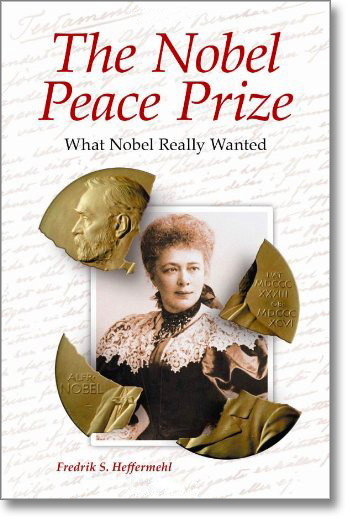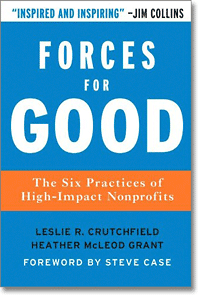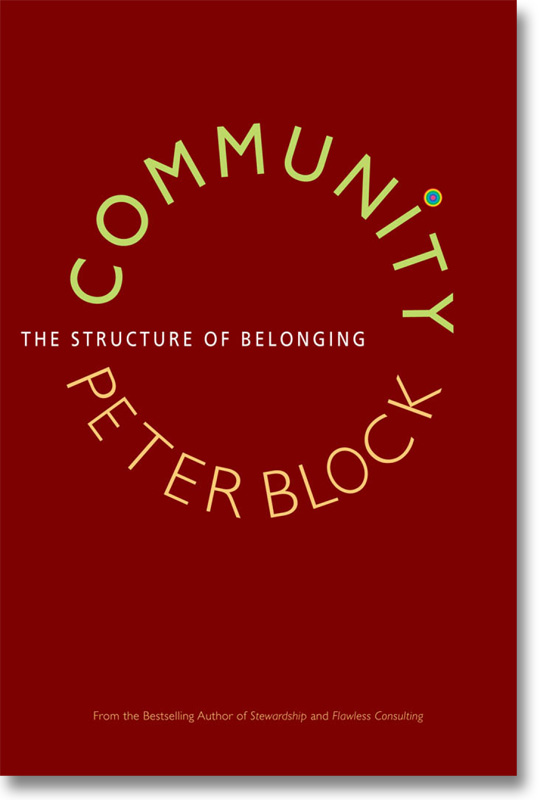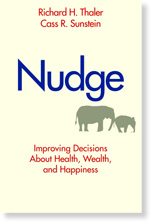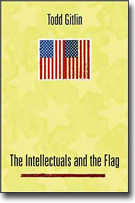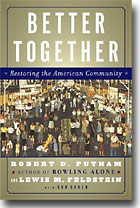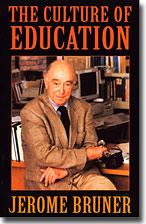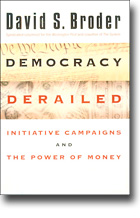
In a former life, I was a book critic. I always hated that term. I've often felt that it's better to be known by what we praise than what we critique. That said, here's a collection of my book columns and reviews from the early 1990s to the present.
From Eclectica Magazine: "Scott London's book reviews specialize in books dealing with the media and politics. Here, the writing is immediate, professional and very often sparkling. This site proves the point that good review writing is an art form in itself. You won't find any goose fat here. It's all relevant, captivating, to the point and thought provoking... Intellectual sunshine."
Recent Book Reviews
Popular Reviews
Complete List of Book Revews
- Eric Alterman - Sound and Fury
- Bryan Appleyard - Understanding the Present
- Harry Ashmore - Civil Rights and Wrongs
- Benjamin Barber - A Place for Us
- Mary Catherine Bateson - Peripheral Vision
- Richard Bernstein - Dictatorship of Virtue
- Burton J. Bledstein - The Culture of Professionalism
- Peter Block - Community: The Structure of Belonging
- David Bornstein - The Price of a Dream
- Anne Wells Branscomb - Who Owns Information?
- Steven Brint - In an Age of Experts
- David Broder - Democracy Derailed
- Anatole Broyard - Kafka Was the Rage
- Jerome Bruner - The Culture of Education
- James MacGregor Burns - Leadership
- Peter Calthorpe - The Next American Metropolis
- Fritjof Capra - The Web of Life
- Dan Clawson et al - Money Talks
- Jeff Cohen and Norman Solomon - Adventures in Medialand
- Robert Coles - The Call of Service
- Mihaly Csikszentmihalyi - The Evolving Self
- Herman Daly and John Cobb Jr. - For the Common Good
- Stanley Deetz - Democracy in an Age of Corporate Colonization
- Edwin Diamond - The Media Game
- Edwin Diamond & Robert Silverman - White House to Your House
- John Patrick Diggins - The Promise of Pragmatism
- E L Doctorow - Jack London, Hemingway and the Constitution
- Stephen Doheny-Farina - The Wired Neighborhood
- Robert J. Donovan and Ray Scherer - Unsilent Revolution
- John David Ebert - Twilight of the Clockwork God
- Barbara Ehrenreich - Fear of Falling
- David Engwicht - Reclaiming Our Cities and Towns
- Alexander Ewen, Editor - Voice of Indigenous Peoples
- Howard Gardner - Intelligence Reframed
- Howard Gardner - The Unschooled Mind
- Jack Germond and Jules Witcover - Mad as Hell
- Todd Gitlin - The Intellectuals and the Flag
- Mary Ann Glendon - A Nation Under Lawyers
- Ellen Goodman - Value Judgments
- Richard Goodwin - Promises to Keep
- David Guterson - Family Matters: Why Homeschooling Makes Sense
- Paul Hawken - The Ecology of Commerce
- Ronald Heifetz - Leadership Without Easy Answers
- Hazel Henderson - Building a Win-Win World
- Hazel Henderson - Paradigms in Progress
- Christopher Hitchens - For the Sake of Argument
- Gail Bernice Holland - A Call for Connection
- Philip K. Howard - The Death of Common Sense
- William Hoynes - Public Television for Sale
- Barbara Marx Hubbard - Conscious Evolution
- Robert Hughes - Culture of Complaint
- Samuel Huntington - The Third Wave
- Russell Jacoby - Dogmatic Wisdom
- Robert Kaplan - The Ends of the Earth
- Mickey Kaus - The End of Equality
- Daniel Kemmis - The Good City and the Good Life
- Paul Kennedy - Preparing for the Twenty-First Century
- David Korten - The Post-Corporate World
- Thomas Kuhn - The Structure of Scientific Revolutions
- Howard Kurtz - Media Circus
- George Lakoff - Moral Politics
- Philip Langdon - A Better Place to Live
- Richard Lanham - The Electronic Word
- Lewis Lapham - The Wish For Kings
- Christopher Lasch - Revolt of the Elites
- Richard Louv - Childhood's Future
- Jerry Mander - In the Absence of the Sacred
- John Minahan - Teaching Democracy - A Professor's Journal
- Willie Morris - New York Days
- John Naisbitt - Global Paradox
- Nicholas Negroponte - Being Digital
- David Osborne and Ted Gaebler - Reinventing Government
- Elinor Ostrom - Governing the Commons
- Thomas Patterson - Out of Order
- Victor Perez-Diaz - The Return of Civil Society
- Kevin Phillips - Arrogant Capital
- Mary Pipher - The Shelter of Each Other
- Neil Postman - Building a Bridge to the 18th Century
- Neil Postman - The End of Education
- Neil Postman - Technopoly
- Robert Putnam and Lewis Feldstein - Better Together
- Jonathan Rauch - Kindly Inquisitors
- Jonathan Rauch - Demosclerosis
- Robert Reich - The Work of Nations
- Howard Rheingold - The Virtual Community
- Robert Richie & Steven Hill - Reflecting All of Us
- Jeremy Rifkin - Biosphere Politics
- Tom Rosenstiel - Strange Bedfellows
- Theodore Roszak - America the Wise
- Peter Russell - The Global Brain
- Peter Russell - Waking Up in Time
- John Ralston Saul - Voltaire's Bastards
- Douglas Schuler - New Community Networks
- Richard Sclove - Democracy and Technology
- Lynn Sherr - Failure is Impossible
- Stephen Skowronek - The Politics Presidents Make
- Philip Slater - A Dream Deferred
- Christa Daryl Slaton - Televote
- Hedrick Smith - Rethinking America
- Huston Smith - Beyond the Post-Modern Mind
- James A. Smith - The Idea Brokers
- Page Smith - Rediscovering Christianity
- Charlene Spretnak - The Resurgence of the Real
- Lee Sproull and Sara Kiesler - Connections
- Horst Stern - The Last Hunt
- Clifford Stoll - Silicon Snake Oil
- Cass Sunstein - Democracy and the Problem of Free Speech
- Cass Sunstein - Republic.com
- Robert Thaler and Cass Sunstein - Nudge
- Paul Thagard - Conceptual Revolutions
- Robert Theobald - The Rapids of Change
- Alvin and Heidi Toffler - War and Anti-War
- Diana Trilling - The Beginning of the Journey
- Ken Wilber - One Taste
- Bruce Wilshire - The Moral Collapse of the University
- Langdon Winner - The Whale and the Reactor
- Wally Wirths - Democracy - the Myth, the Reality
- Sheldon Wolin - The Presence of the Past
- Robert Wuthnow - Sharing the Journey
